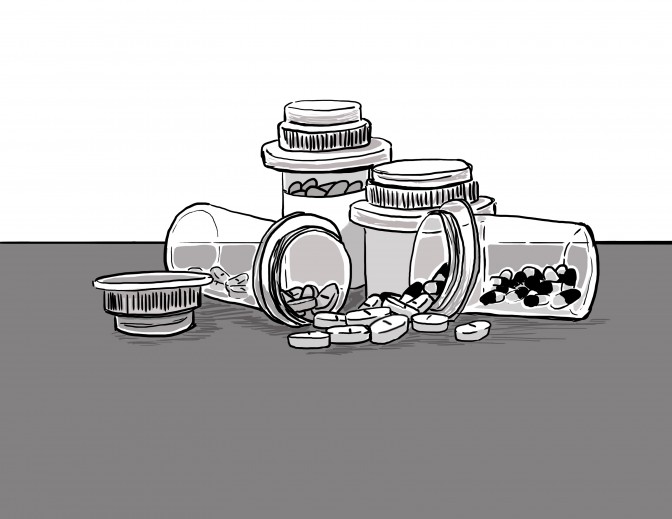There are plenty of educational and rehabilitation programs that focus on relationships and the individuals, but nutrition can also play a role.
According to a Harvard Medical School publication, addiction involves craving for something intensely, losing of control over its use and continuing use despite adverse consequences. Furthermore, addiction changes the brain by first disrupting how the brain registers pleasure and then corrupting other processes such as learning and motivation.
Director of Health and Alcohol Education, Randy Haveson, a speaker with RISE Speaking and Consulting who has worked as a treatment counselor said studies have found that having a proper diet helps prevent addiction relapses.
Haveson said via email that proper nutrition by itself won’t prevent substance abuse or relapse, especially in early recovery while the body is repairing itself. He added that it’s important to give the body what it needs to heal effectively.
“Think of it like restoring an old car. When you find the car, it is beat up, rusty and not functioning well,” Haveson said via email. “As you add new parts, remove the rust and clean the engine, you want to make sure you treat it well, put in the right kind of oil, gas.”
Many educational and rehabilitation programs don’t focus on diet and nutrition.
“There’s so much information to incorporate into a new recovery program. I found it almost overwhelming when I realized how difficult it was to stay in recovery,” Haveson said via email. “Just now, we’re realizing how important proper nutrition is to a recovery program. I wish I had this information when I was getting sober. It would have helped.”
Thirty-year advocate of natural food and healthy living Dr. Keith Kantor, CEO and founder of the Nutritional Addiction Mitigation Eating & Drinking program, explained the effect a diet can have on someone in correlation to substance abuse.
“There is no direct, specific scientific correlation between a bad diet and substance abuse,” Kantor said via email. “Although, a poor diet will keep the opiate receptors stimulated which may have a small effect. There is an effect psychologically, and using logic and common sense.”
Kantor added that a smaller percentage of healthy people abuse drugs or alcohol because they care too much about their body and appearance.
“They are much less likely to allow peer pressure or personal problems to let them destroy or hurt something they have work so hard for,” Kantor said via email.
On the other hand, people who will eat anything and are less concerned with living a healthy lifestyle seem to have lower self-esteem in many cases, said Kantor via email.
“They are easier to be moved by peer pressure or personal problems towards substance abuse,” Kantor said via email. “These people, in many cases, do not consider themselves nice looking outside or inside, so [they] use substance abuse to try and seem cool and cover up their low self-esteem.”
Sharon Aronoff, health educator at CSUN, explained the services that CSUN offers, such as the Klotz Student Health Center, which provides free nutrition counseling to all currently enrolled students.
“Students who are concerned about substance use or addictive behaviors may meet with a counselor at University Counseling Services or see a physician at the health center,” Aronoff said.






